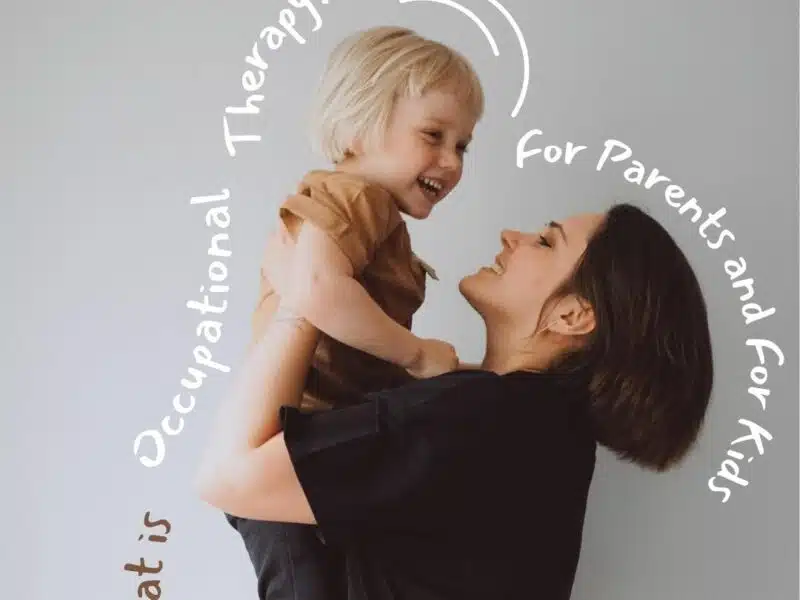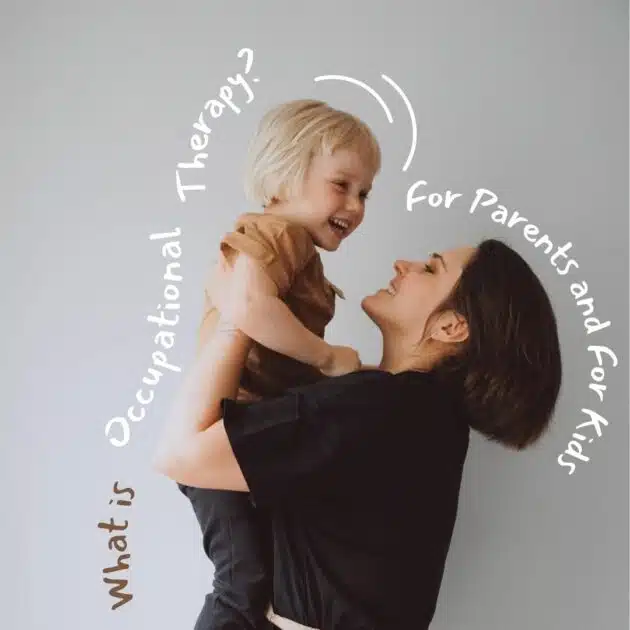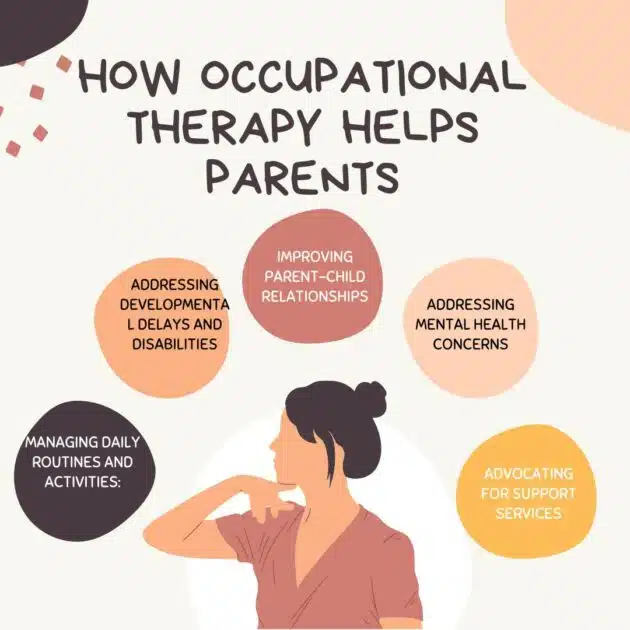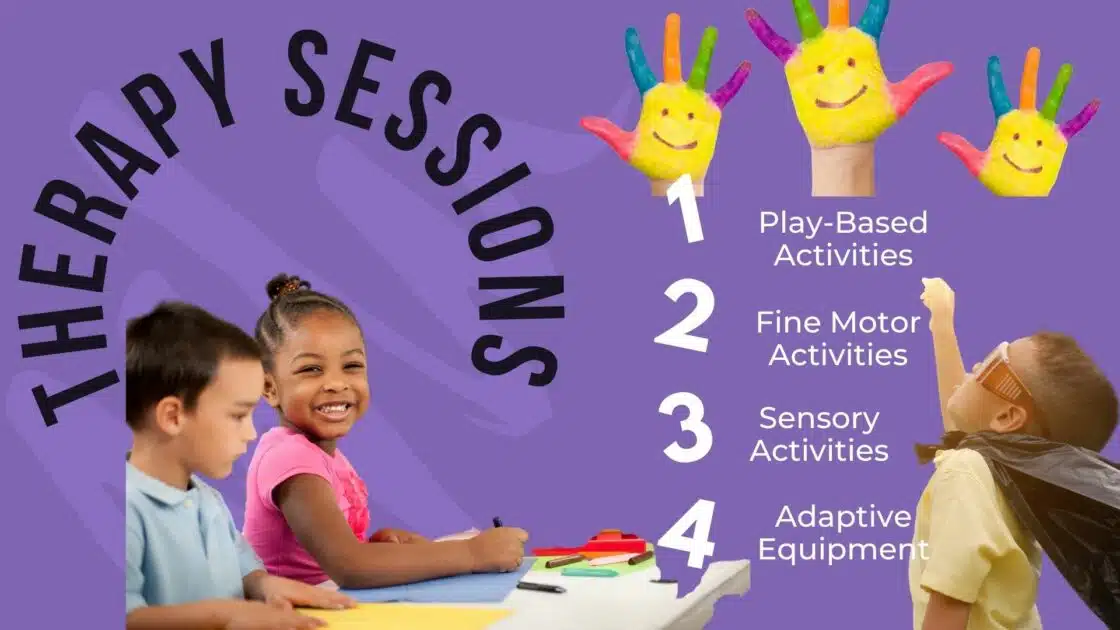What is Occupational Therapy? For Parents and For Kids

Discover the Benefits of Occupational Therapy for Parents and Children
20th Apr, 2023
Occupational therapy (OT) is a type of healthcare that focuses on helping people improve their ability to perform everyday activities, or “occupations,” that are important to them. This might range from cleaning your teeth and getting dressed to engaging in school, employment, or leisure activities.
The target audience for occupational therapy includes parents and kids, as OT can help children with a wide range of developmental, physical, sensory, and cognitive challenges. For parents, occupational therapy can be a valuable resource for supporting their child’s growth and development.

Understanding occupational therapy is crucial because it may assist parents and children in identifying areas in which they might want assistance and offer them useful tools and treatments to handle these difficulties.
Parents and children can better understand their individual strengths and difficulties and create a tailored strategy for attaining their objectives by working with an occupational therapist.
Whether improving handwriting, increasing independence with self-care tasks, or participating in sports and recreational activities, occupational therapy can provide the tools and support needed to help children reach their full potential.
How Occupational Therapy Helps Parents

Here Are Some of the Ways That Occupational Therapy Can Help Parents:
Managing Daily Routines and Activities: OT may assist parents in creating plans and methods to control their family’s everyday activities, such as meals, bath time, and sleep routines. An occupational therapist can work with parents to identify areas where they may be struggling, and offer practical solutions to make these routines more manageable and less stressful.
Addressing Developmental Delays and Disabilities: If a child has a developmental delay or disability, occupational therapy can help parents better understand their child’s needs and abilities. An OT practitioner can provide parents with specific strategies and interventions to support their child’s development, such as sensory integration techniques or adaptive equipment to facilitate daily activities.
Enhancing Parent-Child Relationships: Parenting may be difficult and exhausting at times, therefore an occupational therapist may assist parents manage their mental health conditions, such as anxiety or depression.
Advocating for Support Services: If a child has a disability or special needs, an occupational therapist can help parents navigate the healthcare system and advocate for support services. An OT practitioner can provide guidance on accessing resources such as special education services, adaptive equipment, and community resources.
Taking Care of Mental Health Issues: An occupational therapist can help parents manage mental health disorders like anxiety or depression because parenting may be difficult and stressful at times.
Here are some article might help your thoughts: Elements Of Thought – Examples And What Is Critical Thinking
How Occupational Therapy Helps Kids
The skills and capacities required to participate in daily activities and achieve their goals can be developed in children through occupational therapy. Here are some specific ways in which occupational therapy can help children:

- Improving Motor Skills: Children can benefit from occupational therapy by developing their fine motor skills, which are necessary for tasks like writing, drawing, and using utensils. They can also help with gross motor skills like walking, running, and jumping.
- Enhancing Sensory Processing: Some children may have difficulty processing sensory information, making it difficult for them to deal with certain textures, noises, or other stimuli. Occupational therapists can help kids learn to regulate their sensory systems and respond appropriately to their environment.
- Fostering social and emotional growth: Children who receive occupational therapy can improve on important social and emotional abilities including self-control, problem-solving, and communication. This can improve relationships with family members, peers, and teachers.
- Addressing Developmental Delays: Occupational therapy can be particularly beneficial for children who experience developmental delays or disabilities. By working with an occupational therapist, children can learn strategies to help them overcome these challenges and achieve their developmental milestones.
- Achieving Better Academic Results: Occupational therapy can provide kids who have learning difficulties the tools and techniques they need to succeed in school. This can include developing better study habits, improving attention and focus, and increasing organizational skills.
Occupational therapy can be a precious resource for children and families. Occupational therapists may support children in acquiring the knowledge and skills necessary to realize their full potential by offering them tailored support and interventions. So occupational therapy can be an effective solution if your child needs help with handwriting, motor skills, sensory processing, or other areas.
What to Expect During Occupational Therapy Sessions
If you’re considering occupational therapy for your child, knowing what to expect during a typical session is essential. Your kid will work with a qualified occupational therapist to build the abilities and techniques required to enhance their capacity to carry out daily tasks during an occupational therapy session.
The specific activities and interventions in occupational therapy sessions will depend on your child’s unique needs and goals. Some common types of activities used in occupational therapy include:

Activities Based on Play: During occupational therapy sessions meant to aid in the development of their motor, sensory, and cognitive skills, younger children may spend more time participating in play-based activities.
Fine Motor Activities: Older children may work on more targeted activities designed to improve fine motor skills, such as handwriting or using scissors.
Sensory Activities: Occupational therapists may also use sensory-based activities to help children regulate their sensory systems and respond appropriately to stimuli.
Adaptive Equipment: Occupational therapists may suggest utilizing adaptive tools like braces or splints in specific situations to help kids execute daily tasks more efficiently.
It’s important to note that occupational therapy is not a quick fix, and consistency and follow-through with therapy are crucial for success. This means attending regular therapy sessions as recommended by your child’s occupational therapist and practicing strategies and interventions at home to reinforce the skills learned in therapy.
In addition to these activities and interventions, occupational therapy sessions may involve parent education and training and collaboration with other healthcare providers or educators interested in your child’s care.
Knowing what to expect during occupational therapy sessions can help your child feel more comfortable and confident in their therapy journey. Your kid can acquire the abilities and methods required to overcome obstacles and accomplish their objectives with the assistance and direction of a qualified occupational therapist.
Finding an Occupational Therapist
Finding the right therapist is an essential first step if you’re considering occupational therapy for your child. Here are some tips to help you find an occupational therapist who can meet your child’s unique needs:
Speak with your child’s physician: He or She may be able to suggest pediatric-focused occupational therapists in your region.
Check with your insurance provider:
There may be a list of nearby occupational therapists who are part of your insurance plan’s in-network provider that you may access.
Look for online directories: Several online guides can help you find occupational therapists in your area, such as the American Occupational Therapy Association’s directory.
Consider recommendations from other parents: If you know other parents with children with similar needs, they may be able to recommend occupational therapists who have been helpful to their children.
When looking for an occupational therapist, it’s essential to consider factors such as their experience working with children, their credentials and certifications, and their approach to therapy. To find out more about a possible therapist’s approach and how they may help your kid, it may also be beneficial to arrange an appointment or phone conversation.
It might take some time and effort to find the ideal occupational therapist for your kid, but it’s a crucial investment in their health and well-being. By using these tips and resources, you can feel confident that you’re making an informed decision and choosing a therapist who can provide the support and guidance your child needs to thrive.
Requesting assistance? may be useful to read:
Recommended: 5 Holistic Approaches To Mental Holistic Health
The Bottom Line
Occupational therapy is a valuable resource for children who struggle with everyday activities. Children can acquire the abilities and techniques necessary to overcome obstacles and accomplish their goals by working with a qualified occupational therapist. Occupational therapy can benefit children in many ways, from improving fine motor skills and handwriting to developing social and sensory processing skills.
Consistency and follow-through with treatment are crucial for success, and parents can reinforce the skills learned in therapy by practicing strategies at home. Parents can consult with their pediatrician, insurance provider, or online directories to find an occupational therapist. It’s essential to consider factors such as the therapist’s experience and approach to therapy.
In general, occupational therapy is a helpful tool for raising children’s and families quality of life. By considering occupational therapy, parents and kids can take an essential step towards achieving their goals and overcoming challenges.















